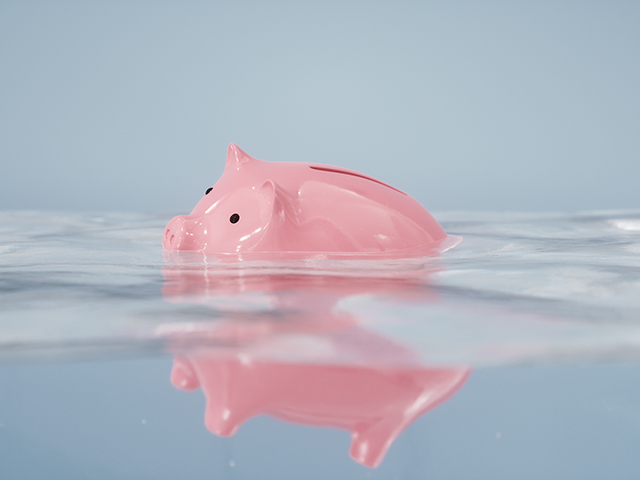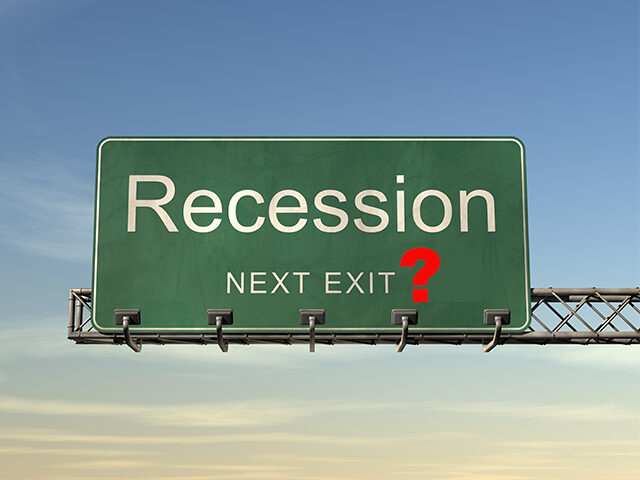Industrial Production Is Rising
How can we break this to you? The economy is not in a recession.
The Federal Reserve reported on Tuesday that industrial production jumped by half a percentage point in April, much better than the zero growth economists expected. Now some of this was due to the fact that the prior month’s preliminary estimate was revised down from 0.4 percent growth to zero.
But manufacturing output in March was revised down to show a 0.8 percent contraction instead of the half-point contraction originally reported. In April, manufacturing output grew one percent, far surpassing the consensus estimate of 0.1 percent growth. Capacity utilization rose three-tenths of a point to 79.7 percent.
This is not a manufacturing boom. The New York Fed’s Empire State manufacturing index crashed last month, and the Philly Fed’s estimate, due out Thursday, is likely to show another month of contraction. On a six-month annualized basis, industrial production is down 0.7 percent. That’s very mild compared with previous downturns and not consistent with a broader contraction.
The auto sector is surging. Motor vehicle and parts production jumped 9.3 percent. Motor vehicle assemblies soared 13.7 percent to a 11.4 million seasonally adjusted annual rate. This is above the prepandemic rate of 10.9 million in 2019. Given low inventory levels at car dealers, this level of production may be a resilient source of strength for the economy.
Recession Obsession
The last time the Economist-YouGov poll asked Americans if we were in a recession, 57 percent answered in the affirmative. This was back in early April; but the most recent survey, taken between May 6 and May 9, is similarly dour. Sixty-seven percent of respondents described the economy as only fair or poor. Just eight percent said the economy was excellent, and 22 percent said it was good.
The most pressing economic problem is inflation, of course. Fifty-four percent of Americans say that inflation is the most important economic challenge facing the country. Yet 33 percent of Americans say that unemployment and inflation are equally a problem. Twenty-six percent say that unemployment is a “very serious” problem, and another 37 percent say it is a “somewhat serious” problem. Just ten percent say that unemployment is not a serious problem.

(iStock/Getty Images)
To put that in perspective, the economy has been generating around 220,000 jobs each month this year. The unemployment rate is just 3.4 percent. There are 1.6 vacant jobs per unemployed people in the United States. By any objective measure, the labor market is extremely tight.
Yet Americans remain very down on the labor market. Only one-third of people correctly said that jobs grew last month. Forty-one percent said job growth was nonexistent, and one-quarter of Americans say we lost jobs in April.
Shopping Till We Drop
Given all this pessimism about the economy, you would think that American consumers would be in retreat. Indeed, they were pulling back spending in March, when retail sales fell 0.7 percent. But sales burst higher in April, rising 0.4 percent. Excluding gas stations and auto dealers, sales jumped 0.6 percent, much better than the 0.2 percent Wall Street anticipated.
The gains in April were not driven by necessities, which is what you might expect in an inflationary downturn. Instead, online sales, sales at general merchandise stores, and sales at bars and restaurants drove the gains. Health and personal care sales registered their fourth straight month of growth.
Consumer behavior, in other words, is performing in line with economic reality rather than the imaginary downturn we see in survey data.

COMMENTS
Please let us know if you're having issues with commenting.